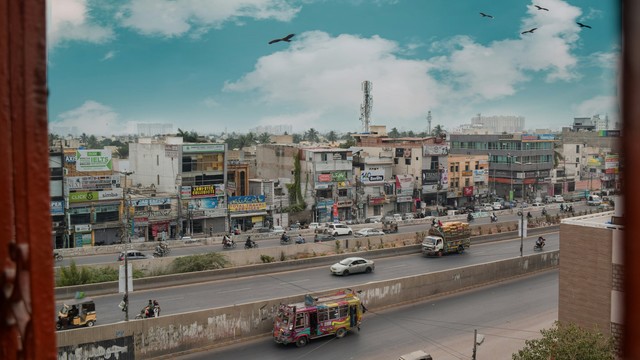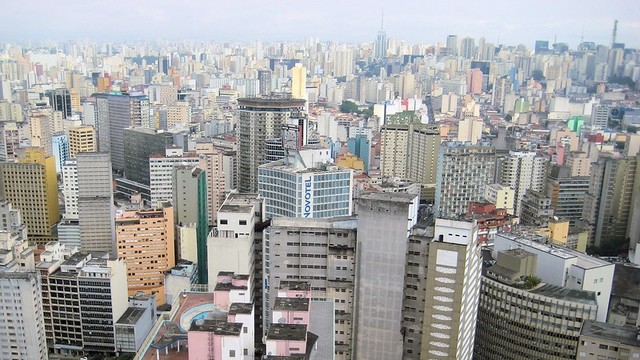Wanted: Urban data revolution for post 2015 sustainable development goals
Around a billion people live in informal urban settlements that lack essential services and security. So, with the international community about to agree on a new set of sustainable development goals (SDGs) for all nations to pursue from 2015, the concerns of these people should be high on the agenda.


Residents of an informal settlement in Pune, India, discuss the results of a survey and how best to upgrade their homes and settlement, guided by Mahila Milan, a grassroots network formed by savings groups of women slum and pavement dwellers (Photo: SPARC)
The focus is on what indicators to use to measure and monitor progress towards these new goals. But there is little discussion of how to gather the data needed to encourage, serve and support such goals. And the data that does exist is often so poor as to be useless.
We therefore need a data revolution, one that informs local action and that draws on the knowledge and capacity of the urban poor as collectors and users of information.
Planning in the dark
Imagine you are the mayor of a city, or the head of a national agency responsible for water supplies. In most low- and middle-income countries you will have no idea which citizens lack provision for water or where exactly they live. The same is true for sanitation, drainage, health care and possibly even schools.
For most cities in these nations, a third or more of the population lives in informal settlements for which there are no accurate maps or surveys assessing needs. This makes it impossible to plan adequately for improving or extending provision. How is it that such basic data are not available? And why do governments and international agencies continue to overlook this fact?
I've written before about the way the list of indicators suggested for the post-2015 development goals fails to address the vast limitations in the existing indicators — whether for water, sanitation, housing conditions or poverty lines.
The vast undercount of extreme poverty in urban areas and of provision for water and sanitation are particular concerns. But just as important is the failure of the whole internationally endorsed data collection system to produce the detailed and disaggregated data needed to inform assessment and action on the ground.
Surveys that fail to inform local action
There are fundamental limitations in what data are currently gathered, from whom they are gathered and to whom they are available and useful. Governments and international agencies use national sample surveys to gather data. But these do not show where action is needed. National sample surveys produce data "for urban population" but not for each urban centre, let alone for each ward or street.
Knowing what percentage of the national or urban population lacks water piped to their home does not help in addressing needs when there is no detail as to where they actually live. Any commitment to ensuring safe, sufficient, affordable provision must be supported by a commitment to generate the data on which housing units and streets are unserved.
Censuses should provide data down to this level, but they are expensive and generally done only every ten years. In many cases the data collected are not available to local governments in a form that allows them to identify the needs.
Also, censuses and other household surveys do not always include households in informal settlements, for which there may be no maps, no street names, no house addresses or numbers and no information on households — not to mention a reluctance on the part of those collecting the data sometimes to go into these settlements.
The data we need
What we really need is more detailed data from each urban centre that describes the deprivations that low-income people face. This must include data on housing conditions, infrastructure and service provision to each street and neighbourhood.
For water, for instance, it should be possible to assess exactly who has safe, sufficient, regular and affordable supplies. It should be possible to make equivalent assessments of health services, sewage, waste collection, policing and emergency services, public transport and more. After all, there is not much point in measuring who has 'access' to services, if these services are of poor quality or are too expensive for much of the population.
It would also be important to identify indicators for other aspects of deprivation, including:
- Lack of voice and power within political and bureaucratic structures
- Risks of eviction
- Discrimination based on gender, age or ethnicity.
On issues of affordability, it would be useful to get data on the proportion of income that people spend on rent, water, pay-to-use toilets, keeping children at school, electricity, health care and transport. Such data could highlight where action is needed to reduce these costs. But this kind of assessment would need to be done in each city and city district.
From data to prosperity — via collaboration
To reduce poverty in urban areas, local governments need both greater competence and to be willing to work with low-income groups. Data can empower both sets of actors to make strategic decisions about what to do.
One of the most profound forms of exclusion for low-income groups and their organisations is the fact that they are never consulted about their needs and priorities. The role of these organisations will only grow as governments realise they cannot make proper plans without data for each locality.
The good news is that there is now 20 years of experience of slum/shack/homeless people's federations surveying and mapping informal settlements. This includes what are — in effect —censuses of informal settlements that collect data from each street, and every household.
When representative organisations of the urban poor collect the data, they not only provide local governments with the information they lack and need in order to act. They also empower these organisations to engage with governments in both planning and implementing actions that can improve the lives of the poorest of citizens. Only then will we have something worth monitoring.
More details: http://eau.sagepub.com/content/24/1/3.full.pdf+html.



